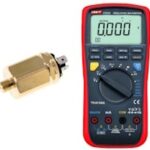Adaptive Cruise Control (ACC) in Audi vehicles enhances driving convenience and safety by automatically adjusting speed to maintain a safe distance from vehicles ahead. However, like any sophisticated system, ACC may require calibration to ensure optimal performance. If you’re an Audi owner, understanding the potential costs associated with ACC calibration is essential. This article will delve into the factors influencing Audi Acc Calibration Costs, helping you navigate this aspect of vehicle maintenance.
ACC calibration is not always a routine procedure. Typically, it becomes necessary after specific events, primarily those affecting wheel alignment or related driver-assistance systems. If your Audi requires a wheel alignment, particularly adjustments to the rear toe, calibration of systems like lane keep assist or traffic jam assist might be mandated. Interestingly, standard ACC, as found in older models, might not always necessitate recalibration after alignment, as mentioned by a user with a 2013 RS5 who never needed ACC recalibration despite multiple alignments.
Dealerships often recommend or even insist on ACC calibration alongside wheel alignments. This practice sometimes stems from concerns about liability if driver-assistance systems malfunction post-alignment without calibration. Even independent repair shops are becoming hesitant to perform alignments on Audis equipped with ACC and similar systems due to the lack of calibration equipment and the potential responsibility for system malfunctions.
The cost of alignment itself can vary. Anecdotal evidence suggests alignment costs around $200 at independent shops, although the user in the original post experienced issues with proper system reset at an independent shop, eventually needing dealership intervention for a correct alignment. Dealership alignment costs can be slightly higher, around $240 in the user’s experience with a Mercedes C63S, which features self-calibrating driver assistance systems.
However, when calibration is bundled or deemed necessary by dealerships, the costs can escalate significantly. The original post highlights a quoted price of $1200, which is described as “insane” for an alignment, implying this figure includes calibration. This substantial increase is a point of concern for Audi owners, especially considering that wheel alignments are often recommended annually, particularly in areas with poor road conditions that can easily disrupt vehicle alignment, especially in vehicles with sport suspensions.
Audi’s driver assistance systems are noted as not being self-calibrating, unlike some manufacturers like Mercedes-Benz. This lack of self-calibration in Audi systems can lead to mandatory and potentially costly calibration procedures at service centers when alignments or related repairs are performed.
For Audi owners, it is crucial to clarify with service providers whether ACC calibration is genuinely required and to understand the breakdown of costs between alignment and calibration. Obtaining quotes from multiple service centers, including both dealerships and reputable independent shops equipped for ACC calibration, can help ensure fair pricing and prevent unexpected high expenses. Understanding when ACC calibration is truly necessary and what factors drive up the cost empowers Audi owners to make informed decisions regarding their vehicle maintenance.
